

100 Words Essay On Kindness Of Rasool In English
“Allah is kind and loves kindness in all matters”, said Prophet Muhammad Rassol of Islam.
The kindness and compassion of Rasool are widely known. Prophet Rasool took after Allah’s example by always being kind to his servants and all creatures (including animals, birds, and insects) without any regard for their beliefs, colour (ethnicity or race), caste, creed, nationality, sex, age, or gender.
Prophet Rasool believed in being kind to friends, relations (especially one’s mother and father), neighbours, orphans, women and even inanimate objects.
Like Allah’s kindness, Prophet Muhammad Rasool’s kindness knew no bounds and was infinite.
Related Posts:
- Random Disease Generator [Fake & Real]
- Stri Purush Tulana by Tarabai Shinde Analysis
- A Grammarian's Funeral by Robert Browning Summary
- Random Harry Potter Character Generator
- Mirza Ghalib Shayari on God
- The Last Visit Poem by Taufiq Rafat Summary, Notes and Line by Line Explanation in English


The Holy Prophet(saw)’s Kindness
The Holy Prophet of Islam (saw) is a unique person in the history of the creation of this earth. None like him was born before him and none like him will ever be born again.
Muslims from all walks of life and from all corners of the world, young and old, educated and uneducated, rich and poor, divided by geography, race and language, are all united in their reverence and devotion to the Holy Prophet (saw) , to the religion of Islam and the Holy Qur’an.
What was so special, extraordinary and unique about the Holy Prophet (saw) that he should have been chosen by God as a supreme example to guide mankind to ideals of happiness and perfection?
Whatever aspect of life we look at or whichever dimension of the life of the Holy Prophet (saw) we try to explore, we find strength and nobility of character and serenity or inner-calm, which comes with communion with God in the fullest sense. Nobility, generosity and magnanimity of the Holy Prophet (saw) shows itself most of all in charity and kindness to all men and more generally to all beings. There was no narrowness or pettiness in the soul of the Holy Prophet (saw) and no limitation in giving of himself to others. His blessed life is full of examples that have kept generations of Muslims inspired.
Of many, I will illustrate only one instance in the life of the Holy Prophet (saw) to prove his care and generosity towards his fellow-beings.
When the Quraish (dominant tribe in Makkah at the time) doubled and redoubled their injuries to the Holy Prophet (saw) and his followers, he undertook a trip, alone, to the city of Ta’if where after calling them to Islam he sought the support of the tribe of Thaqif . His words to worship One God caused a storm of anger. They drove him from the city and the rabble and slaves followed him, hooting and pelting him with stones until the evening.
Wounded and footsore, bleeding and weary, the Holy Prophet (saw) took shelter under the shades of some palm trees.
Imagine the plight of a person who has been persecuted all day, famished, hungry, thirsty and unprotected, sitting exposed under a palm tree. Did he seek revenge? Did he pray to Allah to destroy the city of Ta’if?
He did none of these things. Instead, the Holy Prophet (saw) raised his hands towards heaven and cried out:
“O Lord, I make my complaint to Thee out of my feebleness. I am insignificant in the eyes of men. O Thou Most Merciful! Lord of the weak! Thou art my Lord! Do not forsake me! Leave me not a prey to strangers nor to my enemies! If Thou art not offended, I am safe. I seek refuge in the Light of Thy countenance, by which all darkness is dispelled and peace comes here and hereafter. Let not Thy anger descend on me! Solve my problems as it pleases Thee. There is no power, no help but in Thee.”
Nothing can show more vividly the generosity, love for mankind and absolute faith in Allah the Almighty that the Holy Prophet (saw) possessed than this incident. As long as Allah the Almighty is not offended, the Holy Prophet (saw) was happy to suffer any indignity to convey the message with which he was entrusted. William Muir is forced to comment:
‘There is something lofty and heroic in this journey of Muhammad to Ta’if: a solitary man, despised and rejected by his own people, going boldly forth in the name of God, like Jonah to Nineveh and summoning an idolatrous city to repent. It sheds a strong light on the intensity of his belief in the divine origin of his mission.’ ( Life of Mahomet, Sir William Muir , pp . 112-113)
Another incident, in total contrast to the Ta’if incident, in the life of the Holy Prophet (saw) that shows his nobility, generosity and beneficent attitude to human beings is the triumphant entry into Makkah, which in a sense, highlights his earthly career. There he was – at the moment of supreme triumph, when the very people who had caused him untold hardship and trials for many years, who had forced him to fight wars were all subdued and at the mercy of one command from him. Instead of thinking of revenge, which was certainly his due, he forgave them all.
Karen Armstrong, commenting on the final triumph, says:
‘After the declaration of General Amnesty, nobody was made to accept Islam by force, nor do they seem to have been under any pressure to do so. Muhammad did not want to coerce the people but to effect a reconciliation.’
The Holy Prophet (saw) ’s behaviour and his vision of a balanced and harmonious life on earth is based on the integration of the temporal and spiritual dimension of one’s life, human reality and relationship with God Almighty.
Indeed, for every occasion, for every circumstance in the life of a Muslim, there is a precedent in the life of the Holy Prophet (saw) from which knowledge and inspiration can be drawn.
The Holy Qur’an is the vast world of creation in which a Muslim lives and the Holy Prophet of Islam (saw) is the interpreter par excellence of that Divine message. That is why all Muslims, all over the world, look up to the life of the Holy Prophet (saw) of Islam to follow his example.
When we look at the history and circumstances of the time of the advent of the Holy Prophet (saw) , we see Arabia and the rest of the world around steeped in corruption and the forces of falsehood were in ascendancy. There was nothing but the forces of disruption and disequilibrium surrounding the world. As the Holy Qur’an sums up the situation:
‘Corruption had appeared on land and sea because of what men’s hands have wrought, that He may make them taste the fruit of some of their doings, so that they may turn back from evil .’ (Ch.30:V.42)
The verse explains that when darkness covers the face of the earth and man forgets God and surrenders to the gods of his own conception, then God raises a Prophet to guide them to the true path.
It was under such circumstances that the Holy Prophet (saw) of Islam was raised. The purpose of his advent as given in the Holy Qur’an is:
…He enjoins on them good and forbids evil and makes lawful for them good things and forbids them the bad things and removes from them their burdens and shackles that were upon them… (Ch.7:V.158)
Such were the circumstances of the time. The Holy Prophet (saw) of Islam broke the chains and shackles that had enslaved humanity and removed the burden under which the humanity was being crushed.
He achieved that revolution with his prophecy and personal example; and humanity was able to raise its head once again with pride.
The Promised Messiah (as) , the true and devoted servant of the Holy Prophet (saw) describes it as:
‘The time when the Holy Prophet was raised was such that it was crying out for a Divine Reformer and a Guide from Heaven with a grand design; and the teachings that he brought were full of verity and contained everything that was needed at that time. …… The ultimate purpose of prophethood is the salvation and freedom of humanity. It was accomplished by him so perfectly that no other prophet had been able to achieve before in his time.’ ( Baraheen-e-Ahmadiyya , pp.112-114)
History tells us that before the advent of the Holy Prophet (saw) , women were treated as chattel and in some tribes, newly-born girls were buried alive. Like slaves, women were treated as inferior species that had no legal existence. In such a primitive world, what the Holy Prophet (saw) achieved was remarkable. The very idea that a woman could act as a witness or could inherit anything at all in her own rights, was unthinkable.
We must remember that in Christian Europe, women had to wait until the 19th century before they had anything similar; even then, the law remained heavily favourable towards men. Western feminists have often denounced Islam with regards to the rights of women. They should perhaps look at the Christian traditions that are extremely negative to women.
If Muslim women today reject some of the so-called freedoms that the West offers them, it is not due to any obstinacy but because the Western view of women and relationship between sexes is confused. While preaching equality and liberation, Western society, at the same time, exploits and degrades women in advertising, pornography and popular entertainment in a way that Muslims find offensive.
The Holy Qur’an and Islam give a much more positive picture of the relationship between the sexes, showing men and women sharing the duties and privileges of Islam side by side in an egalitarian society. The Hoy Qur’an declares:
Surely men who submit them-selves to God and women who submit themselves to Him , and believing men and believing women, and obedient men and obedient women and truthful men and truthful women, and men steadfast in their faith and steadfast women, and men who are humble and women who are humble, and men who give alms and women who give alms, and men who fast and women who fast, and men who guard their chastity and women who guard their chastity , and men who remember Allah much and women who remember Him – Allah has prepared for all of them forgiveness and a great reward. (Ch.33:V.36)
This subject is vast and deserves a separate treatment. Let me conclude with a Tradition of the Holy Prophet (saw) . Whenever the Holy Prophet (saw) was to be absent from Madinah, he used to tell Muslims that they should consult Hadhrat ‘A’ishah (ra) if they had any religious problem. After his demise, Hadhrat ‘A’ishah (ra) was an important authority about the Holy Prophet (saw) ’s life and religious practice.
Now I come to the subject of slavery: slavery is an abominable and repulsive system of social inequality in which some people are treated as an item of property belonging to other individuals or social groups. Slavery has existed in human history from antiquity and people have exploited other people or nations for their own gains.
Reading modern history, we only find the mention of the banning of importing slaves in 1807 by the British and the abolition of the institution of slavery in 1833. The historians conveniently forget that the only historical figure who stood up against this practice was none other than the Holy Prophet Muhammad (saw) .
The Qur’an and the Traditions of the Holy Prophet (saw) advise kindness towards slaves and humane treatment and encourage setting them free. The Holy Prophet (saw) himself had a slave called Salman (ra) whom he immediately freed and made him a member of his family. The Holy Prophet (saw) exhorted the believers:
“And as to your slaves, see that ye feed them as ye feed yourselves and clothe them as you clothe yourselves.”
The Holy Prophet (saw) , advised all his followers to free the slaves and suggested that there was not an act more acceptable to God than freeing the slaves. He ordered that slaves should be allowed to purchase their liberty with the wages of their services. The whole tenor of the teachings of the Holy Prophet (saw) made permanent possession of slaves or a caste system impossible. Indeed it is simply an abuse of words to use slavery in English sense to any status known in Islam.
What can be more important than the last words of a dying person? Hadhrat ‘Ali (ra) and Hadhrat Anas (ra) narrate that the last word that they heard from the lips of the Holy Prophet (saw) were, “O Muslims, never ever forget my teachings about Salat [Prayer] and about slaves.”
When these words were said, his wives, daughter and her children, indeed the whole family and his Companions were around him. This was going to be his advice to his people. He did not think of his family. The only thing that worried him in the last breaths of his life was the plight of the slaves and their treatment.
When we look at the Arabian tribal life of the time of our beloved Prophet (saw) , we find that there was no central authority. Every tribal chief was responsible for the protection of his tribal members and had to be prepared to avenge each and every injury. Blood-feuds or vendettas were common. Life was cheap and killing per se was not considered immoral. Robbery was not considered immoral unless you stole goods from your own kinsmen.
This was a savage and brutal society in which only the strong would survive and weak were either eliminated or exploited. Infanticide was a normal way of population control. Indeed, women, like slaves, had no human or legal rights. Although property was sometimes inherited by women, men married them to take away their legal inheritance.
When the Arabs of that period fought their battles, they made no distinction between combatants and non-combatants, women and children or old and disabled.
In such a savage and unregulated society, our beloved Prophet (saw) stands out as a refreshing example of the protector of the weak and laid down the rules of combat.
Ibn Hisham states that the Holy Prophet (saw) , the beneficiary for mankind, sent out an expedition to face a Bedouin tribe that had occupied Madinite territories with the historical and memorable words, “In no case shall you use deceit, nor shall you kill any child.” When dispatching his troops against the Byzantines, the Holy Prophet (saw) instructed them:
- Never injure the weak in avenging the injuries inflicted upon us.
- Do not molest the harmless inmates of domestic seclusion or people devoted to any religion.
- Spare the women, children and old people.
- Do not injure the infants at the breast, or those who are ill in bed.
- Abstain from demolishing the dwellings of the unresisting inhabitants.
- Do not destroy their means of subsistence, nor their fruit trees and touch not the palm tree.
- No animal should be killed.
- Do not disfigure your enemy by cutting off their nose, ears or other organs.
The complete list is much longer and more elaborate. It covers the treatment of prisoners of war and their remission. It is important to remember that the above instructions were not a result of any agreement but self-imposed rules to respect the old, the innocent, the disadvantaged, the infirm and respect God’s creatures and preserve the environment.
The Western world first made an international agreement on the conduct of warfare in 1864 and called it Geneva Convention. It was ratified in 1906. But it was not until 1950 and again in 1978 that it was extended to include rights of non-combatants and protection to civilians. The world forgets that it was the humanity of one great man of Arabia, whose every heartbeat, every thought and every action was a mercy for mankind and who gave this Charter to the world 1300 years before the West even thought about it.
As I said in the beginning, our beloved Prophet of Islam (saw) came as a Mercy for mankind and provided protection to the weak and freed humanity that was held under bondage. By his very example, he showed how mutual love, tolerance and understanding can make diverse societies live together.
We only have to look at the life of the Prophet (saw) when he migrated to Madinah after suffering years of persecution in Makkah. Madinite society consisted of Muslims, Jews, pagans and Christians. He entered into an agreement or a treaty known as Meethaq-ul-Madinah. This document has been carefully preserved in the pages of Ibn Hisham. The Covenant of Madinah clearly shows the genius of the Holy Prophet (saw) . In this regard, William Muir called the Holy Prophet (saw) ‘A master-mind, not only of his own age but of all ages.’
The document is long and detailed and needs separate treatment. Suffice to say, that this first document between a heterogeneous society and Muslims gave full and equal rights to non-Muslims.
The above Covenant that the Holy Prophet (saw) had written down fourteen centuries ago established the freedom of faith and opinion, sanctity of human life and property and forbiddance of crime.
It was around the 6th year after Hijrah that the Holy Prophet (saw) granted to the monks of the monastery of Saint Catherine near mount Sinai and to all Christians a Charter which is still known as one of the noblest evidences of enlightened tolerance that the history of mankind can produce. This remarkable document that has been preserved by the historians of Islam, shows a wonderful breadth of liberality. By this, the Holy Prophet (saw) secured for Christians the privileges and immu-nities that they never possessed under the rules of their own kings. The Charter is very detailed but some of the provisions show the merciful nature and the greatness of character of the Holy Prophet (saw) . The Charter enjoins all Muslims to protect the Christians and defend their churches. The Holy Prophet (saw) declared that any Muslim violating or abusing his orders should be regarded as violator of God’s testament, a transgressor of God’s commandment and His faith.
Let those who allege that Islam was spread by force, remember that Islam protected the fundamental rights of all religions and respected and defended them against violence.
The scholars agree that as long as the Muslims followed the above teachings, they ruled over a large part of the world for 1000 years. But when they forgot, their decline started.
Alas! Muslim of today have forgotten the Sunnah of the beloved Prophet (saw) and have started to preach and practise sectarianism thus shattering the unity of the Ummah that the Holy Prophet (saw) strived to put together in his life-time.
It is not possible to give all the details or a comprehensive vision of the kindness to mankind that the Holy Prophet (saw) rendered or deal with the social and spiritual revolution that he brought for humanity. Even in his last Sermon, he was thinking of the Rights of Mankind. In fact his last sermon is a Charter of Human Rights the like of which was adopted by civilised nations in 1948.
The Sermon emphasised to Muslims the regard of others and the regard of life and property, equal rights of men and women and their mutual obligations, the rights of slaves, their equal treatment and their right to freedom, the equality of mankind irrespective of colour, creed or national affiliations. And so it con-tinues to lay down rules and guidance for mankind to live in peace and harmony.
Besides the above reforms, our beloved Prophet Muhammad (saw) was always and at every opportunity thinking of the justice and social welfare of the people. The Bait-ul-Maal , or the public treasury, was meant to help the poor, the disabled and disadvantaged. His followers followed his injunctions faithfully as can be seen from one remark of Hadhrat ‘Umar, the Second Khalifa (ra) (spiritual successor) to the Holy Prophet (saw) . He once said:
“ If I know that a dog on the banks of River Tigris has gone to sleep hungry, then I have been negligent in my duty.”
His emphasis on education that you must seek knowledge even if you have to travel to China, is another guidance that only now the world has started to realise.
His emphasis on social justice and on justice is exemplary and unique. His practice of charity is a model for all of us. He used to give everything away and kept nothing back. After his demise, nothing of value was found in his house.
Indeed, the figure of Holy Prophet Muhammad (saw) as a guide of men in this world and the next and his multiple role of ‘prophet’ and guide of men and ruler of a new social order can only be compared with prophet-kings of the Old Testament, to David (ra) or Solomon (ra) and especially to Abraham (ra) himself.
In the capacity of a prophet, a father and a ruler of a State, he transformed a barbaric and uncivilised society into a disci-plined, tolerant, humanitarian society that went on to leave its mark on the world history and his commandments are still guidance and inspiration for billions of Muslims all over the world. That is why it is absolutely essential for us to follow in his footsteps if we aspire towards spiritual realisation. He indeed was a mercy to mankind!
My rendering will not be complete without expressing the emotions and feelings of the Promised Messiah (as) , the true servant of the Holy Prophet (saw) , for his Master and Guide. He says:
‘O Allah! send down your blessings on Your Prophet and on Your Beloved, The Chief of all Prophets, Superior to all, Best among the Messenger and the Seal of the Prophets, Muhammad (saw) and his people and his Companions and shower Your blessings and peace upon them.’ ( Baraheen-e-Ahmadiyyah , pp.256-265, footnote 11)
The love that the Holy Prophet (saw) gave to humanity and his kindness towards all the creations of Allah, make it obligatory upon all Muslims to feel gratitude and love for him.
Allah and His angels send blessings on the Prophet. O ye who believe, you also should invoke blessings on him and salute him with the salutation of peace. (Ch.33:V.57)
Related posts:
- The Philosophy of the Teachings of Islam – Final Part
- The Devastating Consequences of a Nuclear War and the Critical Need for Absolute Justice
You may also like

What does Islam say about Prisoners of War?
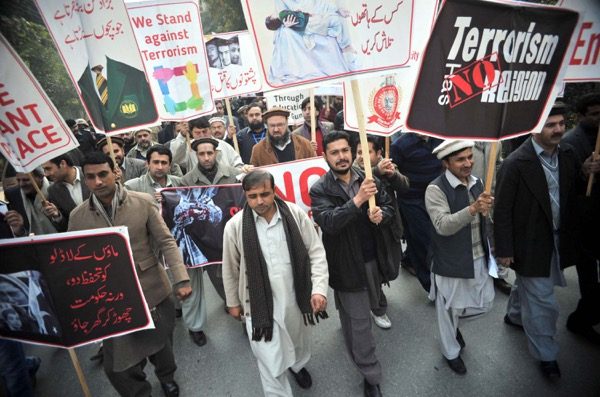
From The Archives: The Search for “Enlightened Moderation” in Pakistan
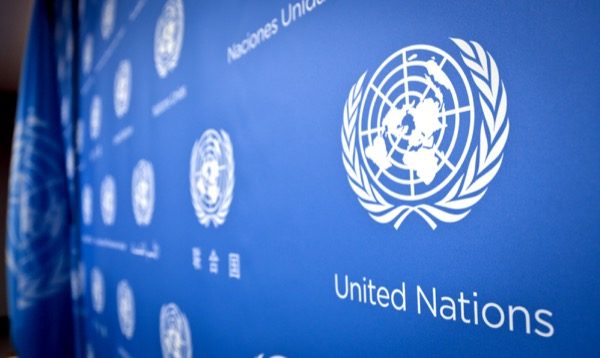
The Keys to Peace in a Time of Global Disorder
16 comments, cancel reply.
I like this page and it is full of information of the Holy Prophet(saw). May God Bless you, whoever wrote this.
I love my Holy Prophet(saw) so much and this page is very informative for all of us.
I love the Holy Prophet(saw) and this page’s writer has done Sadqa-e-Jariya.
Mashaallah, well written.
Allahumma salli alaa Muhammadin wa ala aali Muhammadin.
May Allah enable us to be his true followers.
The speech is so wonderful
I am really impressed and this is so good. I know everything about the Holy Prophet(saw) with the help of the above topic. Thanks
MashaAllah, this gave a clear understanding of how the Holy Prophet Muhammad(saw) struggled for the sake of humanity. May Allah guide all humans to follow in Muhammad(saw)’s footsteps.
Thank you, Salaam Alaikum.
Amazing speech MashaAllah
MashaAllah, it is written with the love of the Holy Prophet(saw) in the heart.
Excellent speech. I liked it very much.
This note is amazing! I love it from my heart!
This topic increased my knowledge about the Holy Prophet(saw) and I liked it very much.
SubhanAllah very lovely essay.
Good information and a very well written essay.
I really like this page very much.
Related Posts
Recent posts.
- The 5 Apology Languages & Islamic Insights into Forgiveness – Part 2
- From Global Warming to Nuclear Winter: Is It Too Late For the Human Race?
- Friday Sermon Summary April 26th 2024: ‘Incidents From the Life of the Holy Prophet (sa) – ‘The Expedition of Hamra’ al-Asad’
- The 5 Apology Languages & Islamic Insights into Forgiveness – Part 1
- Friday Sermon Summary 19th April 2024: ‘Incidents from the Life of the Holy Prophet (sa) – ‘Martyrs of the Battle of Uhud & the Expedition of Hamra’ al-Asad’
Recent Comments
- Shazia Rehman on Backbiting – Satan’s Dessert
- Shazia Rehman on The Gift of a House from God: A True Story
- Zayn K on The Gift of a House from God: A True Story
- Kate on The Gift of a House from God: A True Story
- MM on The Gift of a House from God: A True Story
- Almas Aasia on The Gift of a House from God: A True Story
- Rawahuddin Khan on Hoping For World Peace
- Mohammed Sbahuddin Rafiuddin on The Case of the Missing Mercedes and Proof of a Living God
- Jalsa Salana
- Existence Project Submissions
- Research Connect
- Hazrat Mirza Masroor Ahmad (aba)
- Secular & Spiritual Treasures of the Promised Reformer NEW
- Religious Concepts
- World Religions
- Archaeology and Ancient Religions
- Science, Medicine and Technology
- The Ancient World
- Christianity
- Contemporary and Social Issues
- Women’s Section
- Coronavirus
- Al-Tafsīr Al-Kabīr: The Grand Exegesis
- Facts From Fiction NEW
- Print Magazine Editions
- Audio Articles
- A Message of Peace
- Barahin-e-Ahmadiyya NEW
- Kashti-e-Nuh Audiobook
- Lecture Lahore
- Lecture Ludhiana
- Lecture Sialkot Audiobook
- The Will Audiobook
- The 100 Year Rewind
- Browse Archive by Month and Year
- Muslim Television Ahmadiyya International
- Subscription
- Spanish Site
- German site
- French Site
- Afghanistan
- Daily Cartoon
Home Article kindness of Holy Prophet (PBUH)
kindness of Holy Prophet (PBUH)

Ali Zohery THE Last Prophet (PBUH) taught love, kindness and compassion to his people, and was seen to be the most loving, kind, and compassionate of all of them. The Quran mentions his kind and gentle behaviour in these words: “O Messenger of Allah! It is a great Mercy of God that you are gentle and kind towards them; for, had you been harsh and hard-hearted, they would all have broken away from you” (Quran 3:159). There are many instances that show his kindness and gentleness, especially to the weak and poor. Anas, who was his helper, said: “I served Allah’s Messenger for ten years and he never said to me, ‘Shame’ or ‘Why did you do such-and-such a thing?’ or ‘Why did you not do such-and-such a thing?’” (Bukhari, 2038). Once he said to his wife: “0 ‘A’ishah! Never turn away any needy man from your door empty-handed. 0 ‘A’ishah! Love the poor; bring them near to you and God will bring you near to Him on the Day of Resurrection”. He also went much further on to say: “Seek me among your weak ones, for you are given provision, or you are given help only by reason of the presence of your weak ones”. (Rahman, Encyclopedia of Seerah, VOL. VIII, p. 151) God Almighty is kind, and the Prophet imitated Allah’s example in its perfection by showing kindness to his servants and all creatures without any regard for their beliefs, color or nationality. The Prophet said: “God is kind and likes kindness in all things” (Bukhari, 6601). His heart ached within him at the corrupt state of his fellow-Meccans and their rejection of One God. The Holy Quran testifies to it in these words: “ Oh Prophet (PBUH), you will, perhaps, consume yourself with grief because the people do not believe” (Quran 26:3). In Surah Kahf, we read: “Well, Oh Prophet (PBUH), it may be that you will kill yourself for their sake out of sorrow if they do not believe in this Message.” (Quran 18:6). And Surah Fatir says: “So let not your life be consumed in grief for their sake.” (Quran 35:8). He took great interest in the welfare of all people and had great compassion for people in trouble. The Holy Prophet (PBUH) imitated the attributes of God par excellence and translated them into practice in the highest form possible for man. Kindness is an attribute of Allah, which has no limits. It is extensive and encompasses all things and all beings without discrimination. Likewise was the kindness of the Prophet. He extended it to all beings, both animate and inanimate and benefited all without measure. The Quranic words for the Prophet’s kindness, ra’ufun rahirn (Quran 9:128) are very intensive and comprehensive in meaning and convey the true nature and extent of the Prophet’s kindness to people. The Prophet said, “One of the finest acts of kindness is for a man to treat his fathers’ friends in a kindly way after he has departed” (Abu Dawud, 5123). The issue of treating friends well was also extended to include relations: “He who wishes to have his provision enlarged and his term of life prolonged should treat his relatives well” (Bukhari, 5985). He emphasized on this matter because he deeply held the view that “Only kindness prolongs life, and a person is deprived of provisions for the faults he commits” (Ibn Majah). Bahz b Hakim, on his father’s authority, said that his grandfather told him that he had asked Allah’s Messenger to whom he should show kindness and that the Prophet had replied: “Your mother.” He asked who came next and he replied: “Your mother.” He asked who came next and he replied for the third time: “Your mother.” He again asked who came next and he replied: “Your father, then your relatives in order of relationship” (Abu Dawud, 5120). He dwelled on the issue of treating orphans humanely as he stated that “The best house among the Muslims is one which contains an orphan who is well treated, and the worst house among the Muslims is one which contains an orphan who is badly treated” (Ibn Majah, 3679). This means that the Prophet cautioned his followers against general maltreatment of anyone regardless of his status. By extending good treatment from friends to relatives and now to neighbours, Prophet Muhammad was intent in making all humans interdependent as he emphasized in the following words: “All creatures are Allah’s dependants, and those dearest to God are the ones who treat His dependants kindly” (Rahman, VOL VIII, p. 154). He emphasized the kind treatment of women again and again in his speeches: Treat women kindly, since they are your helpers; . . . you have your rights upon your wives and they have their rights upon you. Your right is that they shall not allow anyone you dislike to enter your bed or your home, and their right is that you should treat them well. (from the Farewell Sermon of the Prophet).
Related Posts

Menace of WW-III in the context of Israel-Palestine crisis

US imposes sanctions on Pak ballistic missile programmes

Functions of the universities

US country report: a true reflection, or…”
PPDWP approves three dev schemes
Fbr chairman not being changed, recommended.

Law and order situation in Pakistan worries cement industry

Crackdown on vehicles with tinted glasses continue

Abducted Session Judge Shakir Ullah recovered

8,381 drugs cases registered, 8,878 traffickers arrested

Gates suggests expanding Punjab’s Shehbaz-led anti-polio strategy across Pakistan

Your source for latest Pakistan, world news. Stay updated on politics, business, sports, lifestyle, CPEC, and breaking news. Accurate, timely, and comprehensive coverage.
Popular Category
Information.
- Terms of use
- Advertise With Us
Download Our App
Download our Android app for the latest Pakistan and world news in just a tap. Stay informed, anywhere, anytime.

© 2023 All rights reserved | Pakistan Observer
- Tax Calculator
- Prayer Timings
- Advertise with us

- McDonell Kanye West highlights difficulties for celebritiesComplimentary decor and design advicewith Summit Park homes
- Magnificent Image Of The New Hoover Dam Bridge Taking Shape
- If Obama Had Governed Like This in 2017 He'd Be the Transformational.
- Last Update 11.30 am
- 29℃ Sydney, Australia
- Single post style_01
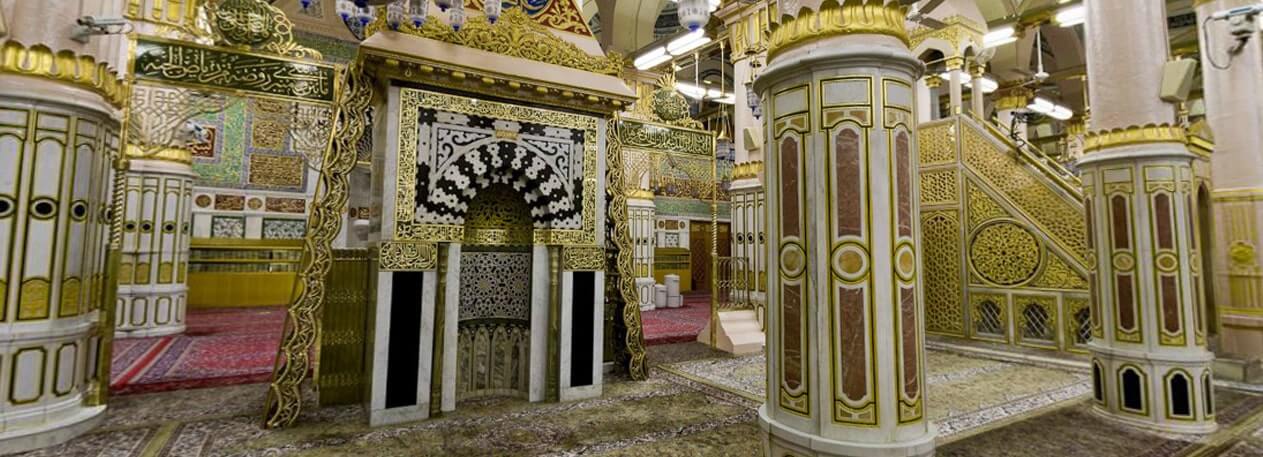
- By Mark Willy
- Jan 10, 2017

Domestic Life of the Beloved Rasool صَلَّی اللّٰہُ تَعَالٰی عَلَیْہِ وَاٰلِہٖ وَسَلَّم
The Seerah of the Beloved Rasool صَلَّی اللّٰہُ تَعَالٰی عَلَیْہِ وَاٰلِہٖ وَسَلَّم in relation to his domestic life is to be followed. Despite fulfilling the heavy responsibilities of propagating religion, his great conduct towards his blessed wives and blessed daughters holds the importance of being the guiding principle for the entire Ummah. The Holy Rasool صَلَّی اللّٰہُ تَعَالٰی عَلَیْہِ وَاٰلِہٖ وَسَلَّم has stated: ‘Best among you is the one who is best for his household; and I am the best for my household among you all.’ (Sunan-ut-Tirmizi, vol. 5, pp. 475, Hadees 3921) Let’s have few glimpses of this aspect of the life of Holy Rasool صَلَّی اللّٰہُ تَعَالٰی عَلَیْہِ وَاٰلِہٖ وَسَلَّم :
Heartening Azwaaj-e-Mutaharraat [blessed wives]
He صَلَّی اللّٰہُ تَعَالٰی عَلَیْہِ وَاٰلِہٖ وَسَلَّم would hearten Azwaaj-e-Mutaharraat رَضِىَ اللهُ تَعَالٰی عَـنْهُنَّ . Once, in order to please Umm-ul-Mu`mineen, Sayyidatuna Khadijah رَضِیَ اللهُ تَعَالٰی عَنْهَا , he صَلَّی اللّٰہُ تَعَالٰی عَلَیْہِ وَاٰلِہٖ وَسَلَّم fed her Heavenly grapes through his miraculous grandeur. (Al-Mu’jam-ul-Awsat, vol. 4, pp. 315, Hadees 6098)
He صَلَّی اللّٰہُ تَعَالٰی عَلَیْہِ وَاٰلِہٖ وَسَلَّم would delight Azwaaj-e-Mutaharraat [blessed wives]
According to the situation, he صَلَّی اللّٰہُ تَعَالٰی عَلَیْہِ وَاٰلِہٖ وَسَلَّم would also delight [Azwaaj-e-Mutaharraat], as Sayyidatuna ‘Aaishah Siddiqah رَضِیَ اللهُ تَعَالٰی عَنْهَا has stated: I was with Rasoolullah صَلَّی اللّٰہُ تَعَالٰی عَلَیْہِ وَاٰلِہٖ وَسَلَّم on a journey. We stayed at a place, so Rasoolullah صَلَّی اللّٰہُ تَعَالٰی عَلَیْہِ وَاٰلِہٖ وَسَلَّم sent the blessed Sahabah رَضِیَ اللهُ تَعَالٰی عَنْهَا ahead and had a race with me. Since I was thin, I outstripped him. Then, after a short period of time, I was with Rasoolullah صَلَّی اللّٰہُ تَعَالٰی عَلَیْہِ وَاٰلِہٖ وَسَلَّم on another journey. We stayed at a place, so Rasoolullah صَلَّی اللّٰہُ تَعَالٰی عَلَیْہِ وَاٰلِہٖ وَسَلَّم sent the blessed Sahabah رَضِیَ اللهُ تَعَالٰی عَنْهَا ahead and had a race with me. At that time, I had gained weight; therefore,Rasoolullah صَلَّی اللّٰہُ تَعَالٰی عَلَیْہِ وَاٰلِہٖ وَسَلَّم outstripped me. Then, while [gently] striking my shoulder with his blessed hand, he صَلَّی اللّٰہُ تَعَالٰی عَلَیْہِ وَاٰلِہٖ وَسَلَّم said: This is the pay back for that [last race].
( Explanation: Remember that this race was in seclusion. Therefore, this Hadees cannot be taken as a proof for the races of men and women in the current era.)
Likewise, the Beloved Rasool صَلَّی اللّٰہُ تَعَالٰی عَلَیْہِ وَاٰلِہٖ وَسَلَّم would also express happiness upon seeing Ummahat-ul-Mu`mineen delighting each other, and at times, he صَلَّی اللّٰہُ تَعَالٰی عَلَیْہِ وَاٰلِہٖ وَسَلَّم himself would join them as well; as Umm-ul-Mu`mineen Sayyidatuna ‘Aaishah رَضِیَ اللهُ تَعَالٰی عَنْهَا has narrated: I prepared Khazeerah (food prepared from meat and flour) for Rasoolullah صَلَّی اللّٰہُ تَعَالٰی عَلَیْہِ وَاٰلِہٖ وَسَلَّم and served it to Rasoolullah صَلَّی اللّٰہُ تَعَالٰی عَلَیْہِ وَاٰلِہٖ وَسَلَّم . Rasoolullah صَلَّی اللّٰہُ تَعَالٰی عَلَیْہِ وَاٰلِہٖ وَسَلَّم was seated with Sayyidatuna Sawdah رَضِیَ اللهُ تَعَالٰی عَنْهَا and me. I also asked Sayyidatuna Sawdah رَضِیَ اللهُ تَعَالٰی عَنْهَا to eat; she refused. I said: ‘Eat it, or else I will rub it on your face.’ She again refused, so I took Khazeerah in my hand and rubbed it on her face. Rasoolullah صَلَّی اللّٰہُ تَعَالٰی عَلَیْہِ وَاٰلِہٖ وَسَلَّم started smiling; he took Khazeerah in his hand and gave it to Sayyidatuna Sawdah رَضِیَ اللهُ تَعَالٰی عَنْهَا , and said: ‘Here, you also rub it on her face.’ Rasoolullah صَلَّی اللّٰہُ تَعَالٰی عَلَیْہِ وَاٰلِہٖ وَسَلَّم expressed happiness at that time. (Musnad Abi Ya’la, vol. 4, pp. 88, Hadees 4459)
He صَلَّی اللّٰہُ تَعَالٰی عَلَیْہِ وَاٰلِہٖ وَسَلَّم would teach religious knowledge
The Holy Rasool صَلَّی اللّٰہُ تَعَالٰی عَلَیْہِ وَاٰلِہٖ وَسَلَّم would impart religious knowledge to Azwaaj-e-Mutaharrat. In this regard, names of Umm-ul-Mu`mineen Sayyidatuna ‘Aaishah Siddiqah رَضِیَ اللهُ تَعَالٰی عَنْهَا and Umm-ul-Mu`mineen Sayyidatuna Umm-e-Salamah رَضِیَ اللهُ تَعَالٰی عَنْهَا come at the top of the list, who received invaluable pearls of knowledge from the Beloved Rasool صَلَّی اللّٰہُ تَعَالٰی عَلَیْہِ وَاٰلِہٖ وَسَلَّم . In fact, the status of Umm-ul-Mu`mineen Sayyidatuna ‘Aaishah Siddiqah رَضِیَ اللهُ تَعَالٰی عَنْهَا was such [great] that she would resolve great perplexing scholarly issues with ease. (Sunan-ut-Tirmizi, vol. 5, pp. 471, Hadees 3909)
He صَلَّی اللّٰہُ تَعَالٰی عَلَیْہِ وَاٰلِہٖ وَسَلَّم would take care of the rights of Azwaaj-e-Mutaharraat Before his apparent demise, the Beloved Rasool صَلَّی اللّٰہُ تَعَالٰی عَلَیْہِ وَاٰلِہٖ وَسَلَّم became ill and wanted to spend the last days of his apparent life at the house of Umm-ul-Mu`mineen, Sayyidatuna ‘Aaishah Siddiqah رَضِیَ اللهُ تَعَالٰی عَنْهَا . Instead of clearly announcing his decision, he صَلَّی اللّٰہُ تَعَالٰی عَلَیْہِ وَاٰلِہٖ وَسَلَّم repeated the following question again and again, while keeping in view the rights of wives: ‘At whose house will I be tomorrow?’ The blessed wives came to know the will of Holy Rasool صَلَّی اللّٰہُ تَعَالٰی عَلَیْہِ وَاٰلِہٖ وَسَلَّم and humbly said: ‘Wherever you like.’ Therefore, he صَلَّی اللّٰہُ تَعَالٰی عَلَیْہِ وَاٰلِہٖ وَسَلَّم stayed at the house of Umm-ul-Mu`mineen, Sayyidatuna ‘Aaishah Siddiqah رَضِیَ اللهُ تَعَالٰی عَنْهَا until [his] apparent demise. (Sahih Bukhari, vol. 3, pp. 468, Hadees 5217)
He صَلَّی اللّٰہُ تَعَالٰی عَلَیْہِ وَاٰلِہٖ وَسَلَّم would also consult with Azwaaj-e-Mutaharraat
Similarly, he صَلَّی اللّٰہُ تَعَالٰی عَلَیْہِ وَاٰلِہٖ وَسَلَّم would encourage them by seeking their advice. At times, he صَلَّی اللّٰہُ تَعَالٰی عَلَیْہِ وَاٰلِہٖ وَسَلَّم even sought their advice in very critical situations. For example, he صَلَّی اللّٰہُ تَعَالٰی عَلَیْہِ وَاٰلِہٖ وَسَلَّم sought advice of Sayyidatuna Khadijah رَضِیَ اللهُ تَعَالٰی عَنْهَا when the first Wahee [Divine revelation] was sent down (Sahih Bukhari, vol. 1, pp. 8, Hadees 3) and the advice of Sayyidatuna Umm-e-Salamah رَضِیَ اللهُ تَعَالٰی عَنْهَا at the occasion of Suleh Hudaybiyah [treaty of Hudaybiyah], and accepted their advice. (Sahih Bukhari, vol. 2, pp. 227, Hadees 2732)

Great conduct towards the daughters
Similarly, he صَلَّی اللّٰہُ تَعَالٰی عَلَیْہِ وَاٰلِہٖ وَسَلَّم would treat his blessed daughters with extreme kindness and affection. He صَلَّی اللّٰہُ تَعَالٰی عَلَیْہِ وَاٰلِہٖ وَسَلَّم would become happy upon their joy and sad upon their grief. In fact, when his most beloved daughter, Sayyidatuna Fatimah رَضِیَ اللهُ تَعَالٰی عَنْهَا would come, he صَلَّی اللّٰہُ تَعَالٰی عَلَیْہِ وَاٰلِہٖ وَسَلَّم would stand up out of extreme kindness and affection. (Subul-ul-Huda War-Rishaad, vol. 11, pp. 44) Through this kind and affectionate conduct, the Ummah not only attains the guidance to create a pleasant environment at home, but undoubtedly, it also highlights the rank and status of woman in Islam.
You can share this post!
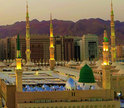
The Noor Of Holy Nabi صَلَّی اللّٰہُ تَعَالٰی عَلَیْہِ وَاٰلِہٖ وَسَلَّم
- February 10, 2017
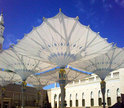
Kindness Of Beloved Rasool Towards Children

Blessed Habits Of Beloved Mustafa صَلَّی اللّٰہُ تَعَالٰی عَلَیْہِ وَاٰلِہٖ وَسَلَّم
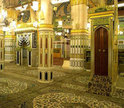
Medical Madani Pearls Bestowed By The Holy Rasool صَلَّی اللّٰہُ تَعَالٰی عَلَیْہِ وَاٰلِہٖ وَسَلَّم

Love Of Holy Rasool For Makkah And Madinah.
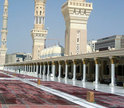
Domestic Life Of The Beloved Rasool صَلَّی اللّٰہُ تَعَالٰی عَلَیْہِ وَاٰلِہٖ وَسَلَّم

The Princes And Princesses Of Noblest Rasool صَلَّی اللّٰہُ تَعَالٰی عَلَیْہِ وَاٰلِہٖ وَسَلَّم
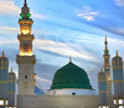
Beloved Rasool صَلَّی اللّٰہُ تَعَالٰی عَلَیْہِ وَاٰلِہٖ وَسَلَّم Understands All Languages.

Blessed Face Of Beloved Mustafa صَلَّی اللّٰہُ تَعَالٰی عَلَیْہِ وَاٰلِہٖ وَسَلَّم .
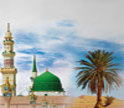
Business Trips Of The Beloved Rasool صَلَّی اللّٰہُ تَعَالٰی عَلَیْہِ وَاٰلِہٖ وَسَلَّم .
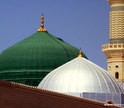
Favourite foods of Beloved Rasool صَلَّی اللّٰہُ تَعَالٰی عَلَیْہِ وَاٰلِہٖ وَسَلَّم
- Family History
- Declaration of Nubuwwah
- Blessings Of Islam
Dark-skinned slave
Luminous face, light of the embodiment of nūr, walls illuminated, lost needle, good memory was granted, unseen knowledge, monstrous camel, lions arrived, parents were resurrected, dead goat rose twitching its ears, children rose from the dead.
- Discover Islam
- Quran Recitations

- Prophet Muhammad
Prophet Muhammad's justice and equality
- Section: His Attributes

"Many a community ruined itself in the past as they only punished the poor and ignored the offences of the exalted. By Allah, if Muhammad's (My) daughter Faatimah would have committed theft, her hand would have been severed." [Al-Bukhari]
Related Articles

The Prophet’s Justice
Prophet muhammad's manners and disposition, the prophet's way in correcting people's mistakes.

- Islamic Songs
Special Folders
- Hajj & Umrah
- Xmas & New Year's
- Sacred Months
- Inheritance
- Prayer Times
- Calendar Converter

Copyright © IslamWeb 2024. All rights reserved.

- Albalagh.net
- AnswersToFatawa
- Arij Canada
- Askimam.org
- Askmufti.co.za
- AskOurImam.com
- CouncilofUlama.co.za
- Darulfiqh.com
- Darulifta Azaadville
- Darulifta Deoband Waqf
- Darulifta-Deoband.com
- Daruliftaa.com
- DaruliftaaMW.com
- DaruliftaaZambia.com
- DarulIftaBirmingham
- Darulihsan.com
- DarulUloomTT.net
- Fatwa-TT.com
- Fatwa.org.au
- FatwaCentre.org
- HadithAnswers.com
- IslamicPortal.co.uk
- IslamicSolutions.org
- Jamia Binoria
- Mahmoodiyah
- Mathabah.org
- Muftionline.co.za
- Muftisays.com
- MuslimaCoaching.com
- Seekersguidance.org
- ShariahBoard.org
- Tafseer Raheemi
- TheMufti.com
- ZamzamAcademy.com
- BinBayyah.net
- Darul Iftaa Jordan
- Shafiifiqh.com
- HanbaliDisciples.com
- TheHanbaliMadhhab.com
- Ask Question
- Lailatul Qadr

Home » Hanafi Fiqh » DarulIftaBirmingham » Rasul and Nabi
Related Q&A
- Concerning the Islam of our Nabi's parents
- How did Nabi (Sallallahu Alaihi Wasallam) get the name ‘Mustafa’?
- Aqeedah on Nabi & Rasul
- Is It Necessary To Return the Income I Earned From a Skill Learned Though Haram Means?
- What's the difference between 'Ya' & 'Al'(e.g. Ya-Rashidu / Al-Rashidu) & the difference between messengers,prophets,Imams and a Caliphs?
- I have been brought up in a community where we have a common problem between the "sunni" and "Thabligh"?who are the sunni's and who are the…
Rasul and Nabi
In the name of Allah, the most Beneficent, the most Merciful.
The word “Nubuwwat” is derived from the word “Naba” which means “a great and important message”. In this case it means that important Message from Allah (SWA) which he intends for his servants and He conveys it via his chosen Messengers (Alaihimus Salaam).
Some scholars are of the opinion that the word “Nubuwwat” means to “raise” or “high”. The Messengers have to convey such elevated knowledge from Allah (SWA) which even the greatest intellectuals are incapable of understanding. Also they are granted such great status and rank that others are not, hence they are called “Nabis”.
The word “Rasul” is derived from the word “Risaalat”. Risaalat refers to a representation between Allah (SWA) and his intelligent creation.
As for the difference between a “Nabi” and a “Rasul”, some scholars say they are the same, but the correct version is that a Rasul is higher in status than a Nabi. It is mentioned in a hadith that the total number of Ambiyaa exceeds 100,000 whereas the number of Rasuls are 313. From this we can deduce that every Rasul is a Nabi but not necessarily that every Nabi is a Rasul.
Some scholars have differentiated between the two by saying that a Rasul is one who is bestowed with a new Kitaab or a Shariah whereas a Nabi is not.
Other scholars say that a Rasul is blessed with a speciality or distinguishing factor. It is not necessarily that a Rasul has a new Kitaab or Shariah because there is a consensus that the Prophet Ismaeel Alayhi Salam was a Rasul but he did not come with a new Kitaab or Shariah.
Shaikul Islam Ibn Taymiyyah (RA) says that a Nabi is that person who speaks about the unseen things from Allah (SWA) and wahi is revealed upon him and the person who has these qualities and he is also deputed to propagate to a disobedient nation, then he is called a Rasul. (Aqaaidul Islam – Maulana Idris Khandhawi p.59 – p.60)
Adam Alayhi Salam was the very first prophet and the Prophet of Allah Sallallahu Alahi Wasalam is the very last prophet and there will be no prophets thereafter.
Allah (SWA) in the Holy Quran has said:
“Muhammad is not the father of any male among you but he is the Messenger of Allah and the seal of Prophets and Allah is aware of all things” (Surah Ahzaab v.40)
The Prophet of Allah Sallallahu Alahi Wasalam had said “I am Muhammad, I am Ahmad, I am the Al-Mahi (the effacer) in that through me infidelity shall be erased; I am the Al-Hashir (Assembler) in that people shall be assembled after me. And I am the al-Aqib (the last). (Sahih Bukhari p.500 v.1)
The Prophet of Allah Sallallahu Alahi Wasalam also said “The Children of Israel used to be guided by Prophets. When a prophet passed away, another prophet succeeded him. But no Prophet will come after me…” (Sahih Bukhari p.491 v.1)
Only Allah Knows Best
Mohammed Tosir Miah
Darul Ifta Birmingham
This answer was collected from DarulIftaBirmingham.co.uk , which is run under the supervision of Mufti Mohammed Tosir Miah from the United Kingdom.
Read answers with similar topics:
Random Q&A
Disposing of paper, pens and pencils, which islamic mortgage i should go for, ghusal after masturbating, intimacy during haidh, if the imam went straight into ruku in witr without reading qunūt., using pirated games, more answers….
- Can I Ask My Husband to Memorise a Surah for Mahr?
- Is Tubal Ligation Permissible for Women?
- Can a woman travel abroad without a Mahram, but with a group of trustworthy women
- Would Searching for Divorce Rulings on Google Establish a Divorce?
- If Your Mother Calls You Whilst You Are in a Fardh Salah
- Can a husband ask the wife to share household expenses?
Latest Q&A
- Is Makeup Allowed During Iḥrām?
- Do These Actions Formulate Disbelief?
- The Status of a Job Acquired with False Certification
- Can a Ḥanafī Resident Pray Behind a Shāfi’īe Traveller?
- Is it Permissible to Allow Wheelchairs in a Masjid?
- Is an Entry Fee at a Charity Event Considered Charity?
Indexed Websites
Privacy overview.
Essay on The Life of Holy Prophet Hazrat Muhammad (PBUH) | My Hero
Essay on the life of hazrat muhammad (صلی اللہ علیہ وسلم), my hero in history.
In this post, you will find an Essay on the Life of Holy Prophet Hazrat Muhammad (PBUH), My Hero in History. You can write the same essay under the title, Essay on the Holy Prophet (PBUH) or Essay on the Life of Hazrat Muhammad (PBUH). This is a simple and easy essay for the students of Class 10 and Class 12. Students of 2nd Year of F.A, FSC, ICS and Icom can get benefit from this essay. Life of Hazrat Muhammad (PBUH) is a role model for every Muslim. In this essay, we will discuss the whole life of Hazrat Muhammad (صلی اللہ علیہ وسلم) in short words. You can practice this essay as a course of your studies. If you are looking for more essays, you can visit English Essays Category .
Essay on The Holy Prophet, Hazrat Muhammad (صلی اللہ علیہ وسلم)
Our Holy Prophet (peace be upon him) was born in Makkah in the famous tribe of Quraish. His father, Abdullah died before his birth. So his mother, Amna Bibi looked after him. But she also died when he was only six years old. New, his grandfather, Abdul Muttalib took charge of him, but he did not live long. Finally, his uncle, Abu Talib looked after him and never left him alone in any hardship.
Our Holy Prophet (Peace Be Upon Him) married Khadija, a wealthy lady of Makkah when he was twenty-five years old. Hazrat Khadija handed over all her wealth to our Holy Prophet (peace be upon him) to spend for good and noble purposes. He helped the poor and needy. When our Holy Prophet (P.B.U.H) reached the age of forty he was commanded by Allah, the Almighty to preach Islam. Our Holy Prophet (P.B.U.H) started preaching that there is no God but Allah who is the creator of the universe and to whom all human beings would return.
The people of Makkah accepted Islam very slowly. In the beginning, only a few people accepted the new religion. The Makkans indeed became the sworn enemy of the Holy Prophet (P.B.U.H) and his follower. They created all sort of troubles for the Holy Prophet (P.B.U.H) but he stood firm. At last, they planned to kill the Holy Prophet (P.B.U.H) and he was compelled to leave for Medina where he was accorded a warm welcome by his followers. But the infidels did not allow him to live even there in peace. They fought several battles in order to wipe out the followers of Islam. However, Allah granted strength to our Holy Prophet (P.B.U.H) to defeat them and come out successful in his mission.
After ten years stay in Medinah, the Holy Prophet (P.B.U.H) came back to Makkah with ten thousand of his followers and conquered Makkah. On the day of his conquest, he could severely punish those who caused so much trouble and planned to kill him, but he excused everybody. After that, the new religion prospered by leaps and bounds.
Our Holy Prophet (P.B.U.H) returned to his Creator at the age of sixty-three. He left for his followers the Holy Quran and the Sunnah.
- More In English Essays
Essay Writing 101: The Basics That Every Writer Should Know

Students and Social Service Essay with Quotations

Load Shedding in Pakistan Essay – 1200 Words
Leave a reply cancel reply.
Your email address will not be published. Required fields are marked *

- Privacy Policty
- Terms of Service
- Advertise with Us

1-718-208-4590
905-487-8501, 0203-002-0934.

Prophet Muhammad (SAW) Master of Tolerance | Love and Tolerance for Mankind
Tolerance is the basic principle of Islam. It is our religious and moral duty to follow the basic principles of Islam in which tolerance also comes. The Quran speaks about the basic dignity of all human beings regardless of their race, color, language or nationality. In Islam, tolerance means to recognize the right to life, property, family honor and morals or principles of all people. Freedom of religion has been guaranteed by Islam since the beginning. It prohibits violence and constraint in matters of faith and belief. The Quran Allah Almighty says: “There is no compulsion in religion.”
Allah Almighty has chosen prophets with best characters, morals, and spirits. The religion Islam brought by Prophet Muhammad (SAW) is a religion of forgiveness, love, and tolerance. Holy Prophet Muhammad (SAW) has been mentioned in these words: “And We have not sent you forth but as a mercy to mankind.” (Quran, Al-Anbiyaa: 107). Prophet Muhammad (PBUH) sent as a mercy for all mankind.
The tolerance that Prophet Muhammad (PBUH) had depicted in his time towards minorities still the clear elicitation of tolerance is expressed from the following verse of Quran for the Muslims that is: “For you is your religion, and for me is my religion.” (Quran 109: 6)
No one from the prophets of Allah Almighty is allowed to forcefully implement their religion on people without their desire. In Holy Quran, Allah says: “Not upon the Messenger is [responsibility] except [for] notification. And Allah knows whatever you reveal and whatever you conceal.”
There are so many examples of tolerance from the life of Prophet Muhammad (PBUH). Some of them we will discuss below in this article:
During the first thirteen years of his life in Makah, he and his followers faced much oppression from their opponents. Muslims were not ordered by Allah Almighty to fight back due to the fact that they had no military strength yet due to the small following which gradually increased. It was only in Medina when his following and military power rapidly grew that fighting to protect themselves and the new religion was allowed.
When the opponents of Prophet (SAW) greatly increased their oppression, his companions asked him to curse them. At this, the Prophet (SAW) replied: “I have not been sent to lay a curse upon men but to be a blessing to them.” (Muslim)
In the battle of Uhud, when his Makkan enemies attacked the Muslims, Prophet Muhammad (SAW) suffered a head injury and his front teeth got broken. When the blood started to seep from his head, he wiped it saying: “If a drop of my blood fell on the earth, those infidels will be destroyed by Allah.” Umar told him, O Messenger of Allah, Curse them! The prophet replied: “I wasn’t sent (by Allah) to curse. I was sent as a mercy.” Then he said: “O Allah, Guide my people!” (Authenticated by Al-Albani)
Our beloved Prophet Muhammad (SAW) said in one of his Hadith: “A true believer is one with whom others feel secure” (Al-Bukhari). He (SAW) proved these words with action and was not fast to revenge a wrong achiever.
Prophet Muhammad (PBUH) has strictly warned his followers from injustice with non-Muslims. “Beware ! Whoever is cruel and harsh to a non-Muslim minority, curtailing their rights, overburdening them, or stealing from them, I will complain [to God].” [Abu Dawud]
The story of Bedouin who urinated in Mosque shed light is on the facts that how tolerant Muhammad (SAW) was towards the non-believers as narrated in one of his Hadith: “A desert Arab came and stood up and began to urinate in the mosque. The Companions of Allah’s Messenger said: Stop, stop, but the Messenger of Allah said: Do not interrupt him; leave him alone. They left him alone, and when he finished urinating, Allah’s Messenger called him and said to him: These mosques are not the places meant for urine and filth, but are only for the remembrance of Allah.” (Sahih Muslim)
These were some examples of tolerance from the life of beloved Prophet (SAW). There are lessons and wisdom to be gained by the modern world in the Prophet’s understanding of tolerance and its application in Islamic history. Muslims as stubborn, aggressive and intolerant, need to look at and analyze the life and actions of Prophet Muhammad (SAW).
Related Posts


IMAGES
VIDEO
COMMENTS
Kindness is an attribute of Allah, which has no limits. It is extensive and encompasses all things and all beings without discrimination. Likewise was the kindness of the Prophet. He extended it to all beings, both animate and inanimate and benefited all without measure. The Quranic words for the Prophet's kindness, ra'ufun rahirn (Quran 9:128 ...
The kindness and compassion of Rasool are widely known. Prophet Rasool took after Allah's example by always being kind to his servants and all creatures (including animals, birds, and insects) without any regard for their beliefs, colour (ethnicity or race), caste, creed, nationality, sex, age, or gender. Prophet Rasool believed in being kind ...
The Holy Prophet of Islam (saw) is a unique person in the history of the creation of this earth. None like him was born before him and none like him will ever be born again. Muslims from all walks of life and from all corners of the world, young and old, educated and uneducated, rich and poor, divided by geography, race and language, are all united in their reverence and devotion to the Holy ...
Kindness is an attribute of Allah, which has no limits. It is extensive and encompasses all things and all beings without discrimination. Likewise was the kindness of the Prophet ﷺ. He ﷺ extended it to all beings, both animate and inanimate and benefited all without measure. The Quranic words for the Prophet's ﷺ kindness, Ra'ufun ...
Allah عَزَّ وَجَلَّ sent the beloved Rasool صَلَّی اللہُ تَعَالٰی عَلَیْہِ وَاٰلِہٖ وَسَلَّمَ full of mercy and kindness for all the worlds. As He عَزَّ وَجَلَّ says in Quran: وَ مَاۤ اَرْسَلْنٰكَ اِلَّا رَحْمَةً لِّلْعٰلَمِیْنَ(۱۰۷) "And We did not send you (O beloved ...
A Man of Mercy: Prophet Muhammad (SAW) was a man who cared for the weak, supported women and stood for everyone who was in need we can say that He (SAW) was a man who embraces mercy. He (SAW) is the man of mercy to all mankind.Hazrat Abu Huraira said: the Prophet (PBUH) was asked to curse the infidels. He said, "I have not been sent to curse ...
The Prophet said: "God is kind and likes kindness in all things" (Bukhari, 6601). His heart ached within him at the corrupt state of his fellow-Meccans and their rejection of One God. The Holy Quran testifies to it in these words: " Oh Prophet (PBUH), you will, perhaps, consume yourself with grief because the people do not believe ...
The Holy Rasool صَلَّی اللّٰہُ تَعَالٰی عَلَیْہِ وَاٰلِہٖ وَسَلَّم has stated: 'Best among you is the one who is best for his household; and I am the best for my household among you all.' (Sunan-ut-Tirmizi, vol. 5, pp. 475, Hadees 3921) Let's have few glimpses of this aspect of the life of Holy ...
God is Kind and He loves kindness, and confers upon kindness which He does not confer upon severity, and does not confer upon any thing besides it (kindness). -Muslim. A Mercy for the Believers The Messenger's compassion towards the believers was of the utmost degree. The Quran describes his compassion in the following verse, which means:
700 Goats. I had seven goats, I made the blessed hands of the Beloved Rasool صَلَّى اللهُ تَعَالٰى عَلَيْهِ وَاٰلِهٖ وَسَلَّم touch my goats, by its blessing, in just one day, they produced enough milk to last us for 40 days. Moreover, my goats were so blessed that they increased from seven to seven ...
In this video, we will show you how to Write an Essay on Kindness of Rasool in English_____English Summary🌍 Check our website: https://englishsum...
The noblest among you in Allah's sight is that one of you who best performs his duty. Allah is All-Knowing, All-Aware.] (Al-Hujurat 49:13) Two hadiths report that the Prophet (peace and blessings be upon him) said, " You are sons of Adam, and Adam came from dust. Let the people cease to boast about their ancestors.
head of state, Prophet Muhammad (SAW) decided all cases with. justice and. equality. Once Quraishi woman was found guilty of theft, being. the dominating tribe, the people wanted to save it's reputation. Hazrat Usama Bin Zaid was asked to appear in place. of that woman. requested the Prophet (SAW) to forgive the woman as she.
The Prophet asked people to be just and kind. As the supreme judge and arbiter, as the leader of Muslims, as generalissimo of a rising power, as a reformer and apostle, he had always to deal with people and their affairs. He had often to deal with mutually inimical and warring tribes when showing justice to one carried the danger of antagonizing the other, and yet he never deviated from the ...
As for the difference between a "Nabi" and a "Rasul", some scholars say they are the same, but the correct version is that a Rasul is higher in status than a Nabi. It is mentioned in a hadith that the total number of Ambiyaa exceeds 100,000 whereas the number of Rasuls are 313. From this we can deduce that every Rasul is a Nabi but not ...
A Poem byFirdaus Fathima (Umm Hashir) Muhammad-ur-Rasool Allah - The beloved slave of Allah! -. In the pagan society of Arabia, a child was born to a pious widow. To the misguided people of that land this birth opened a window. To let the rays of knowledge light up their lives of ignorance. To help them understand the essence of truth, love and ...
Essay on The Holy Prophet, Hazrat Muhammad (صلی اللہ علیہ وسلم) Our Holy Prophet (peace be upon him) was born in Makkah in the famous tribe of Quraish. His father, Abdullah died before his birth. So his mother, Amna Bibi looked after him. But she also died when he was only six years old. New, his grandfather, Abdul Muttalib took ...
English class 9 in urdu9th English unit 1.18, Essay on Kindness of Rasool رسول کی رحمدلیThis lecture is specially recorded for students of 9th class, 9th cl...
The religion Islam brought by Prophet Muhammad (SAW) is a religion of forgiveness, love, and tolerance. Holy Prophet Muhammad (SAW) has been mentioned in these words: "And We have not sent you forth but as a mercy to mankind." (Quran, Al-Anbiyaa: 107). Prophet Muhammad (PBUH) sent as a mercy for all mankind. The tolerance that Prophet ...
Answer: Essay on "The Kindness of the Rasool". Explanation: "Rasul" is an Islamic word for "messenger" while "Nabi" is an Islamic and Hebrew word for "prophet.". Prophet Muhammad is the first known Messenger. The rise of Islam was, in essence, the Prophet, believed by Muslims to be the last of a long line of prophets that ...
Kindness means to be good to every person around us. It is a quality of being polite to others. Hazrat Muhammad is the last prophet of Allah. The kindness and compassion of Hazrat Muhammad are widely known. There are many examples of his kindness especially towards the weak and the poor. The Rasool (SAW) showed them the right path.
About Press Copyright Contact us Creators Advertise Developers Terms Privacy Policy & Safety How YouTube works Test new features NFL Sunday Ticket Press Copyright ...
500 Words Essay On Kindness. The world we live in today has been through a lot of things from world wars to epidemics, but one thing which remained constant throughout was resilience and kindness. Moreover, it was the spirit to fight back and help out each other. Kindness must be an essential and universal quality to make the world a better place.